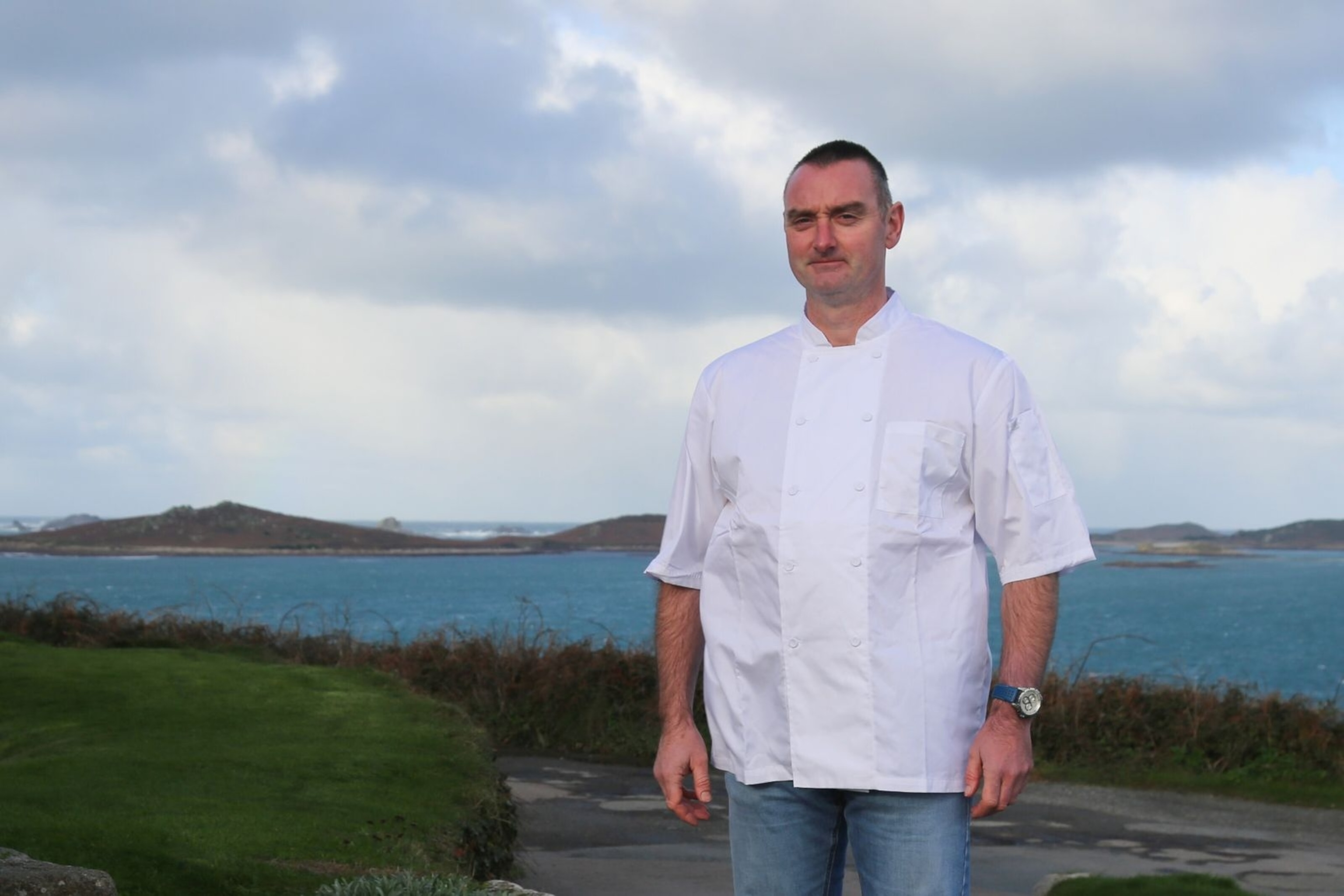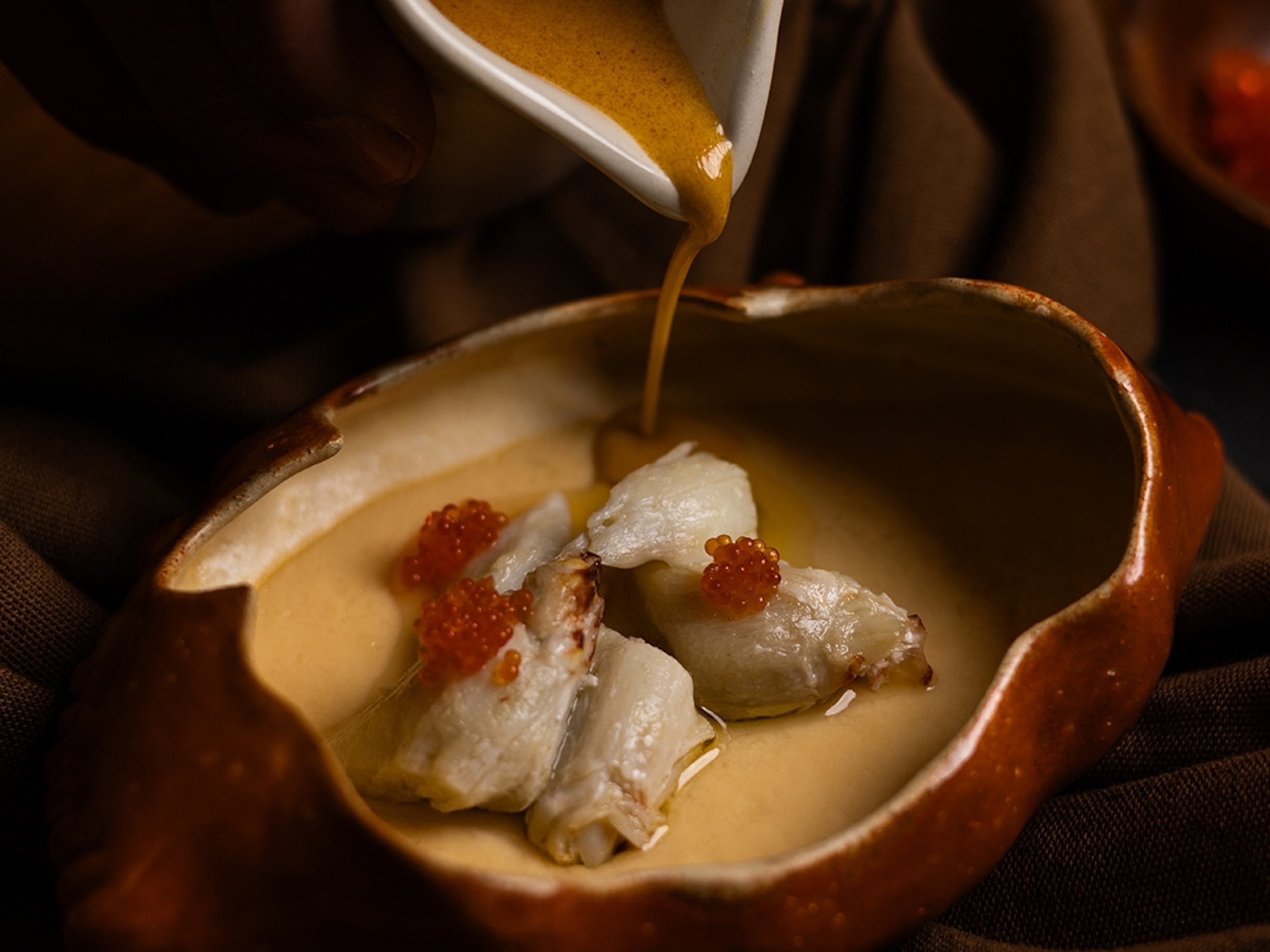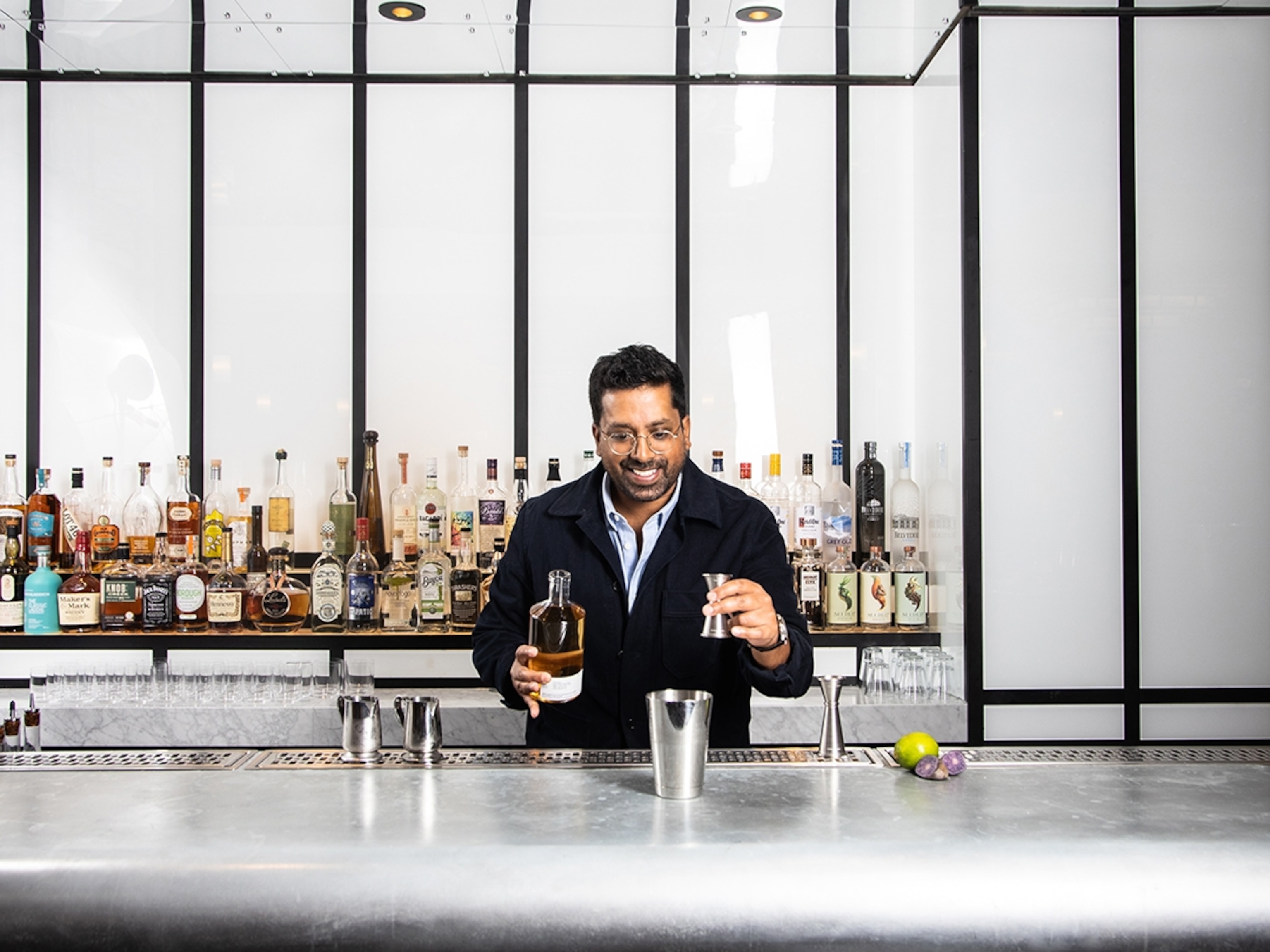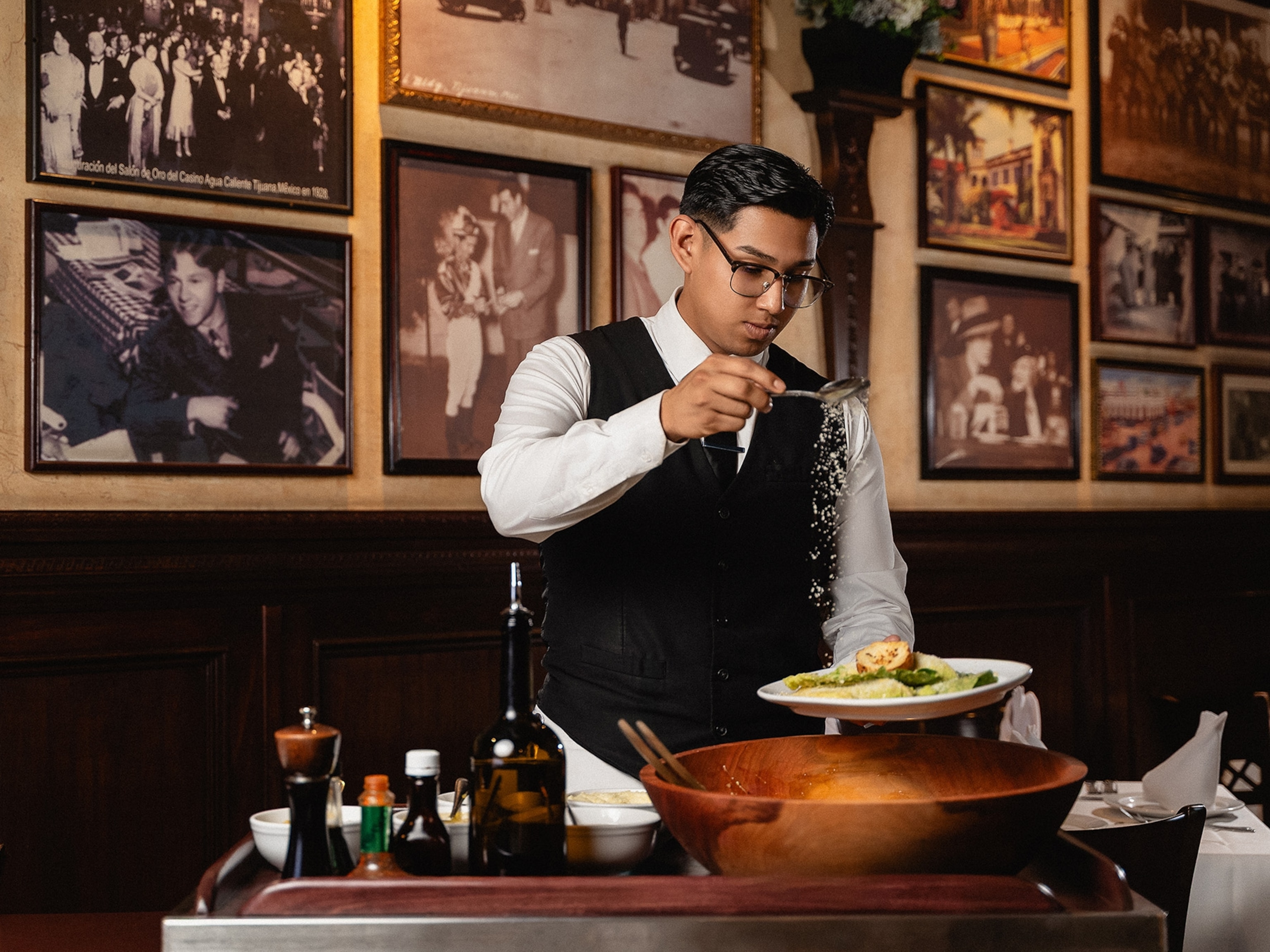
The pioneer: how chef Billy Littlejohn has created a hyperlocal menu on a remote island
On St Mary’s, in the Isles of Scilly, chef Billy Littlejohn has set himself the challenge of offering a ‘one-mile’ menu at the Star Castle Hotel, using only the most local of produce.
12 Nov 2021 — From empty beaches that look too tropical to be in Britain to wild boulder-strewn headlands surrounded by turquoise, shipwreck-studded seas, the 140-odd islands making up the Isles of Scilly feel every bit as remote as they are. Getting to this small archipelago — home to 2,203 people at the last count — is a challenge. Twenty-eight miles off the southwest coast of Cornwall, they’re reachable via a wallet-emptying, 15-minute helicopter flight from Land’s End, an often-bumpy ride in a twin-prop from Exeter, Newquay or Land’s End, or a two-hour-40-minute, choppy ferry crossing, navigating some of the country’s most treacherous waters. So, imagine trying to run a kitchen that operates not one, but two fine dining restaurants.
The Star Castle Hotel sits within the walls of a 16th-century castle, high above the harbour on St Mary’s, the largest of the five inhabited islands. Head chef Billy Littlejohn is a master of going with the flow. If there are strong gales and the local fishermen can’t get out, he’ll try the day boats in Cornwall, which can seek out more sheltered fishing spots; if the ferry can’t deliver ingredients he’s ordered from the mainland because of the Scillies’ frequent storms, he turns to his homemade pickles and preserves to add texture, colour and flavour to his dishes.
More recently, though, Littlejohn has been working closely with local growers, spearheading a movement to encourage them to plant the cheffy kind of produce he previously brought in from the mainland, from edible flowers and micro herbs to vegetables not grown on the islands before, such as kohlrabi, bok choy and purple carrots. “I wish I could get even more of it,” says the enterprising Scot.
The farming methods are unusual here. Because of the frequent high winds, the tiny fields are each surrounded by tall, windbreak Pittosporum hedges, creating a series of hidden chambers under brilliant blue skies. Because of its mild climate, with virtually non-existent frosts, Scilly was once famous for its flower farms — many specialising in narcissi; the first bulbs arriving in the window boxes of sailing schooners from the Med in the 18th century, or so the story goes. Narcissi are still abundant here, with around 30 varieties scattered fragrantly throughout the islands. But with the rise of imported flowers from Africa and South America over the past few decades, the number of growers has shrunk from 60 to just 10.
It’s on some of those abandoned flower farms that market gardens are now springing up, and they’re having a small but significant impact on life here. As well as providing employment and supplying restaurants, locals and self-catering tourists, they’re helping to raise cooking standards and fuel creativity, with chefs now embellishing plates with an edible flower here and micro herb garnish there and dialling up the flavours with freshly picked produce. In short, plates of food have never looked or tasted so good in Scilly.
Encouraged by the feedback from customers and buoyed by the growers’ success, Littlejohn and his team have developed a series of ‘one-mile’ dishes that take eating local to a whole new level on this island, which measures just 6sq miles in area. These dishes appear on the daily-changing menu and are currently the biggest sellers. Guests can’t resist the freshly plucked, hyperlocal veg, or fish caught earlier that day from the crystal-clear waters nearby. “It’s straight out of the ground or sea and onto the plate, so what could be better than that?,” says Littlejohn.
The ‘one-mile’ dishes include starters such as mackerel, pickled cucumber with salad of turnip, spring onions and dill oil, plus Star Castle-caught crab, radishes, rock samphire and crab bisque. Mains might include local brill with crab-crushed potatoes, asparagus, seared scallops, wild garlic puree and sauce antiboise, plus local john dory with parsnip puree, fondant potatoes, wilted spinach, lobster and sauce vierge. And desserts include an assiette of Scillonian strawberries — strawberry soup, strawberry mousse and eton mess.
The Star Castle Hotel’s owner, Robert Francis, often catches the fish himself – heading out to sea whenever he’s needed to empty his lobster pots, scoop up enough crab, or catch some john dory, mackerel and turbot. Francis is also responsible for creating Britain’s most southerly vineyard, having planted pinot noir, chardonnay and a little pinot gris in a sheltered spot a short walk from the castle in 2003. The recently released 2019 Holy Vale Vineyard Chardonnay Pinot Gris is his best wine yet — bursting with appley freshness, with a pleasing salty seam and a honeyed melon finish that’s a thrilling match for Scilly’s celebrated sweet, taut-fleshed lobster, the pairing enjoyed by guests at the winery with Littlejohn’s ‘one-mile’ lobster lunch, transported from his kitchen by electric buggy and eaten on the deck beside the vines after a tour and tasting.
It’s all a very long way from Littlejohn’s former life in the East Ayrshire town of Cumnock. After a back-breaking decade delivering coal, he headed to Scilly, following a friend who’d taken a summer job waitering there. Littlejohn washed pots in the kitchen before spending the next decade working his way up through the ranks to become head chef, marrying a local girl and having three children along the way.
Now 47, the chef has since chalked up another decade in that position, gathering inspiration from his library of cookery books. Littlejohn rarely leaves Scilly and isn’t planning on relocating in the foreseeable future, either. “I think we do the best food in Scilly, so why would I move on? If I had one ambition, though, it would be to up the level of my food further,” he says.
Not that this is an experimental-kitchen kind of crowd — there’s no gimmickry here. Instead, Littlejohn and his team turn out elegant plates that let local produce shine (non-local dishes are mostly made with ingredients sourced from Cornwall).
“I don’t like to complicate things with too many ingredients on a plate. The hero of the dish is that lovely bit of john dory, or [Scilly-reared] salakee duck, and you still want to taste that,” he says.
Essentials
Getting there
The Isles of Scilly has its own scheduled airline, Skybus, with flights from Exeter, Newquay and Land’s End airports. islesofscilly-travel.co.uk
Staying and eating there
The Star Castle Hotel offers B&B doubles from £153. The ‘one-mile’ lobster lunch at Holy Vale Vineyard costs £26.50 per person and includes a glass of wine.
More info
visitislesofscilly.com







